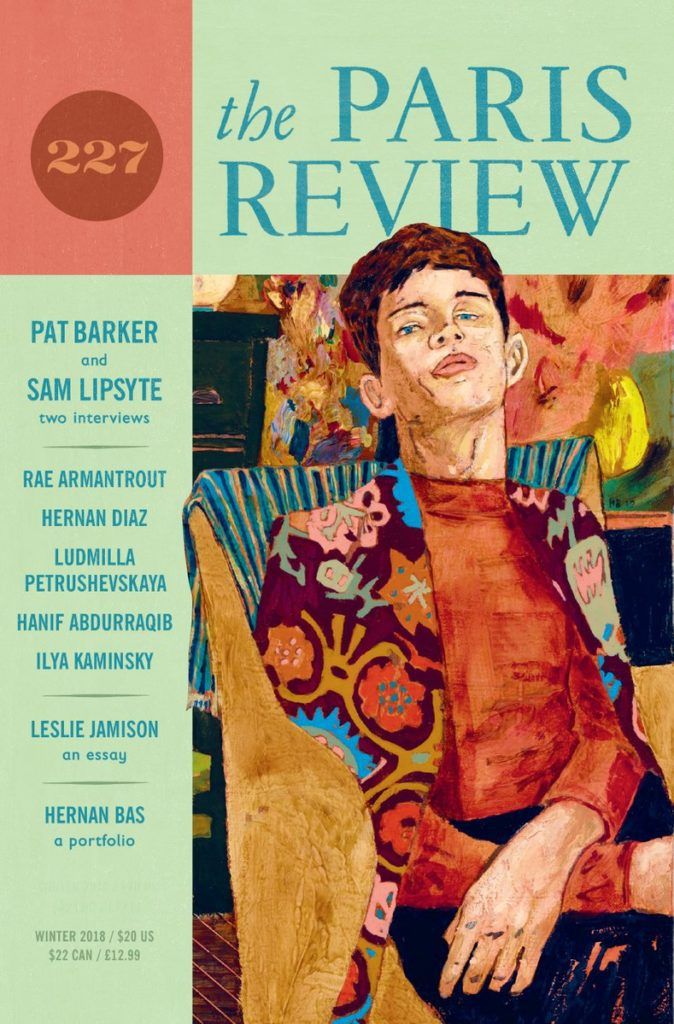
Baton Rouge’s Emily Nemens is the newest editor of The Paris Review
What do you get when you take a Seattle native, a B.A. in fine arts and art history from Brown University, a stint at the Smithsonian in Washington, D.C., an internship at the Metropolitan Museum of Art in New York City, a job at the American Institute of Architects, a nationally recognized collection of watercolor portraits of women in the 112th and 113th U.S. Congress, an M.F.A. in creative writing from LSU, and seven years spent editing award-winning short fiction at that same university’s storied literary magazine, The Southern Review?
First, you get a mild headache after trying to comprehend that level of multi-faceted achievement. Then, you realize that you’re looking at just a sliver of the resume belonging to Emily Nemens, the former Baton Rouge writer and editor who came out on top of a nationwide search this past April to land one of the most respected positions in the literary world: editor-in-chief of The Paris Review.
Originally founded in its namesake city in 1953 before moving to New York in 1973, The Paris Review, behind a simple white door on a third floor in Chelsea, remains one of the most prestigious literary magazines in the United States. Publication in its pages—whether via a short story, poem or one of the magazine’s famous author interviews—designates a rite of passage for writers hoping to make history, showcasing an array of cultural bigwigs from T.S. Eliot to Zadie Smith, all the way back to British author E.M. Forster, a personal friend of the magazine’s co-founding editor, George Plimpton, who forged the Review’s reputation for big names and even bigger parties.
But Nemens has some ideas of her own.

“I’ve been having a lot of meetings with people, trying to reintroduce the magazine and let them know what our priorities are,” she says. The parties won’t go away completely, she adds, but Nemens, already booked for appearances as distant as 2020, intends to be more of a presence on a local level, paying attention to groups who not only support, but inspire, the writing she works with every day.
“In terms of my favorite parts of the job,” she says, “it’s probably an even split between working with authors I’ve admired for a very long time and finding new voices we rarely hear or haven’t heard before.”
Her vision of a more inclusive future couldn’t be more timely. Nemens, after all, strode to the helm of The Paris Review during a time of rapid and unexpected transition. The magazine’s former editor resigned his title in 2017 amidst allegations of sexual misconduct, and his replacement by a young, 34-year-old woman almost demands significance. But Nemens is no chess piece. Her track record in taste and talent extends far beyond her current role, back to the one that helped prepare her for it in the first place—her job as fiction editor of The Southern Review at LSU.
“That magazine was co-founded by Robert Penn Warren and Cleanth Brooks when they were only about 31 years old,” says Nemens. “I took over as editor there when I was 30, so I was heartened by the fact that these two great authors were still early in their careers, like I was.”
Selected for the full-time position after spending the first two years of her M.F.A. program as the magazine’s assistant editor, Nemens says she understood the need to rise to the excellence of her forebears, but also to spear opportunities that brought new energy to the institution, always looking for exciting developments in Southern literature and beyond.
The country noticed. Of the 20 pieces of fiction selected for this year’s Best American Short Stories, for example, three of them found their first home in The Southern Review, including a piece by the Iran-born, London-based author Dina Nayeri. A source of pride for Louisiana, yes, but also for the larger literary landscape.
“People are paying attention to writers from so many places, not just New York,” she says. “I’m thinking especially of literature in translation by writers who may not have had opportunities to be read in the States before. I don’t want to say it’s a trend, because I hope it never goes away, but it feels like a real change in publishing, and that’s exciting.”
The art-filled covers of Nemens’ first two issues at the helm of the prestigious publication
Nemens’ editorial eye doesn’t exist solely behind the scenes. Soon enough, readers will get the chance to see her own literary merit at work in her first novel, The Cactus League, inspired by childhood trips to Arizona with her baseball-loving father, and slated for publication by Farrar, Straus and Giroux in February 2020.
“It’s a novel set in Phoenix, Arizona, during spring training for a fictional baseball team, the Los Angeles Lions,” she says. “It takes place right after the recession, and I created a whole season for this team in the midst of that, but I was also interested in the larger community that comes together for those six weeks of every year—all the exasperations and trials of the team, but also the culture of the place and the experiences of everyone involved, from concession workers to wives to sports writers.”
First envisioned as a short story collection for her M.F.A. thesis, Nemens achieved the final result with support from her LSU advisors and fellow writers Jennifer Davis and James Wilcox. A few tips from the Tigers didn’t hurt, either.
“I actually got a press pass to the LSU football press corps for the 2012 season to help me understand the culture of sports writing and see the workings of the press room,” she says. “It really became integral to the narrative and a driving force in the book, so thank you, LSU!”
Even at the newest peak of success, Nemens doesn’t hesitate with her gratitude.
“I was so excited to have that experience with LSU,” she says. “It’s also amazing that a literary magazine like The Southern Review exists in Baton Rouge in the first place—it’s such a national treasure, and I would encourage everyone to pick it up.”
As for The Paris Review, don’t let its name fool you into thinking it has nothing to offer the Bayou State.
“I know it has this air of ‘New York literati’ about it,” says Nemens, “but a person from Baton Rouge is editing it now. My work here comes from a place of real enthusiasm for what we’re doing with literature and the magazine we’re putting together. It was so wonderful to have had a hand in The Southern Review for so many years, and I’ve definitely taken that with me to my new place at The Paris Review.”













